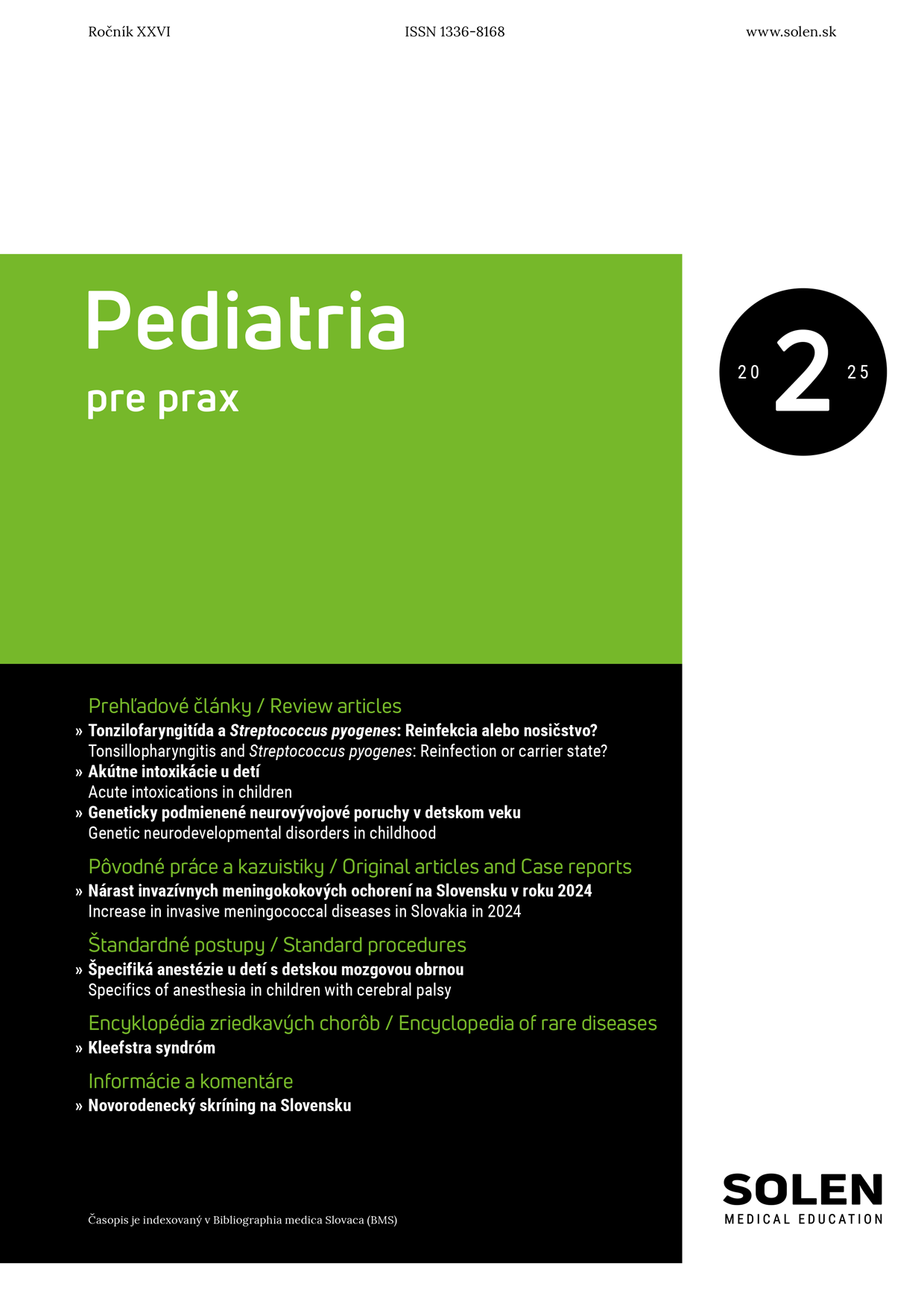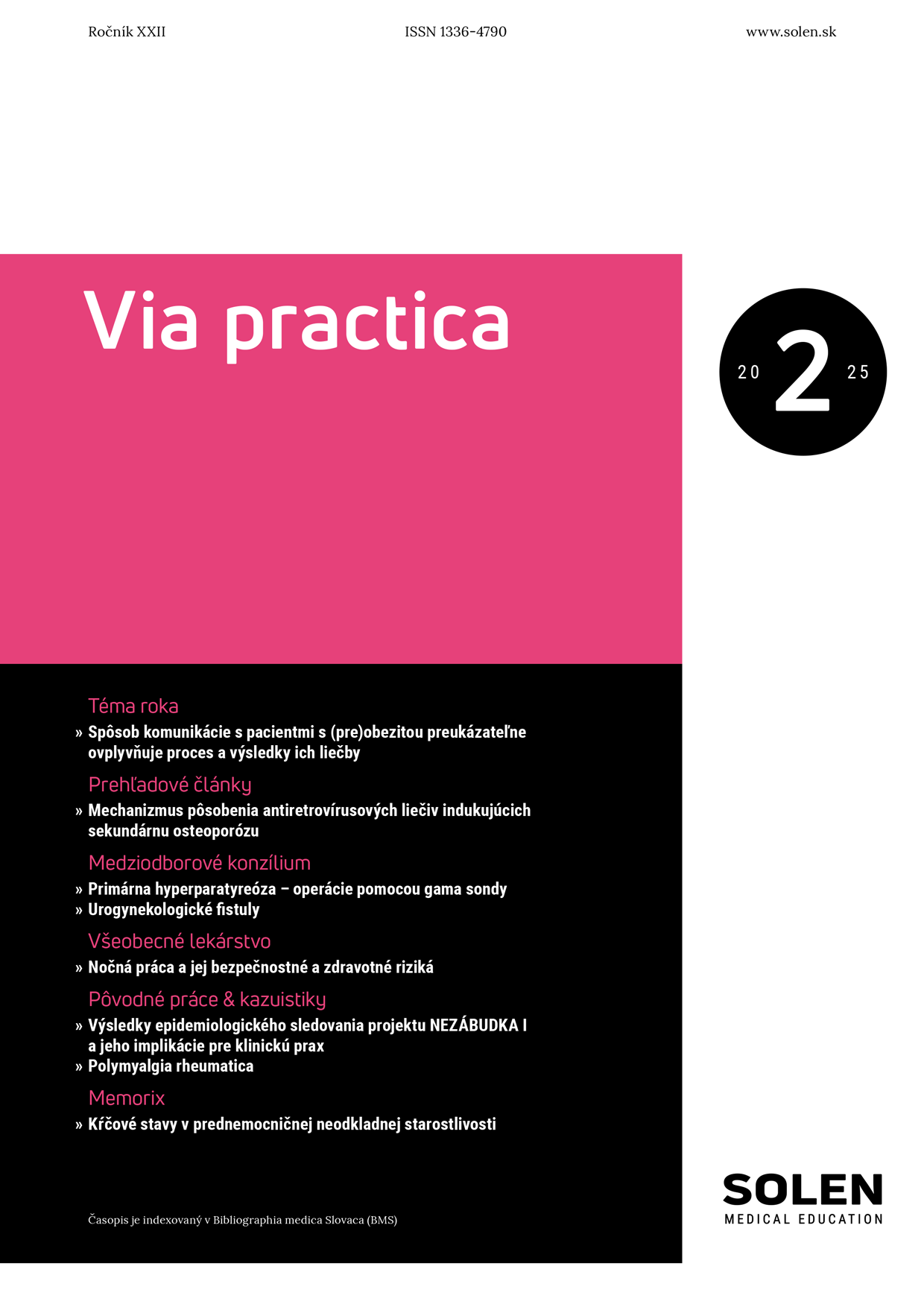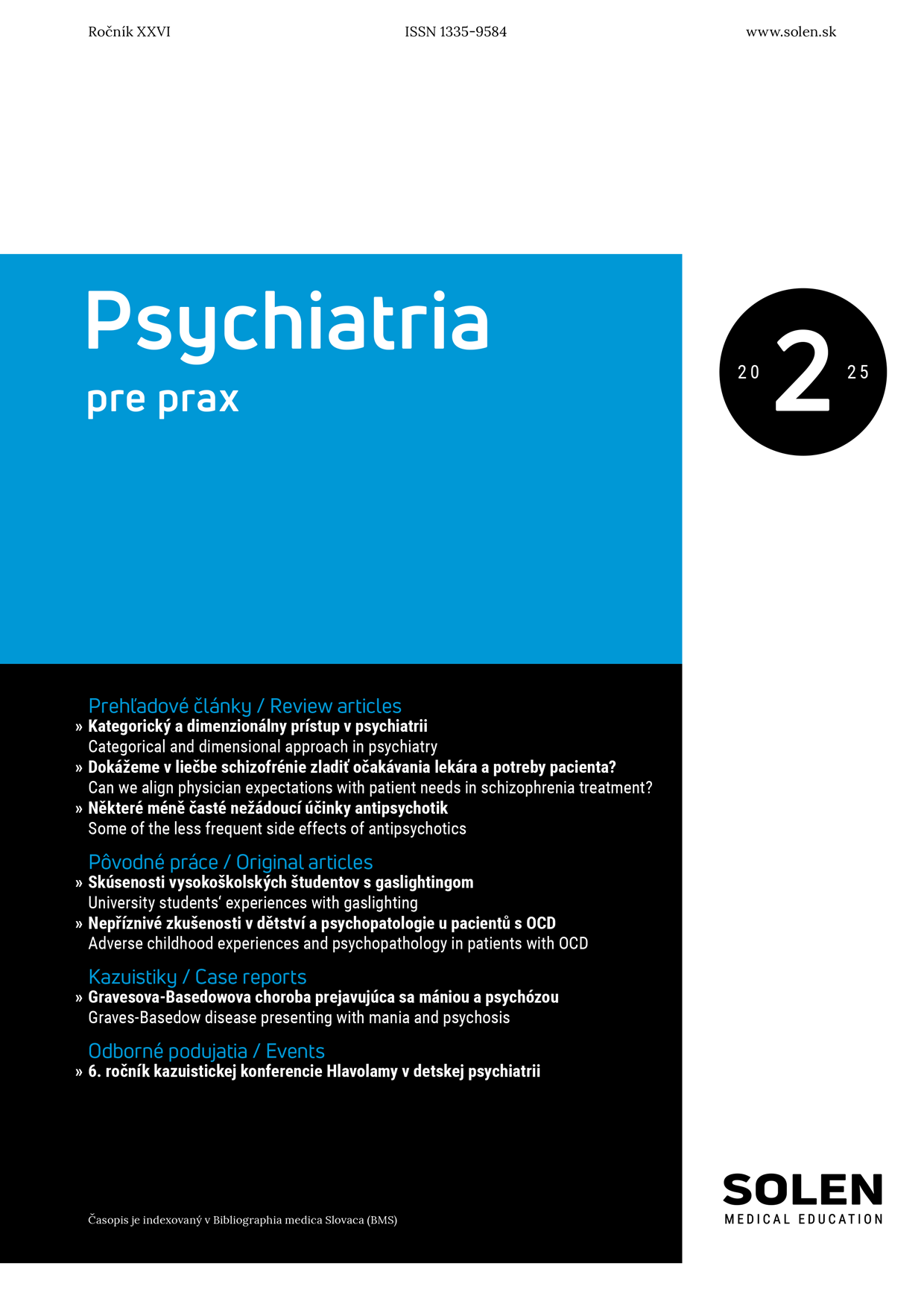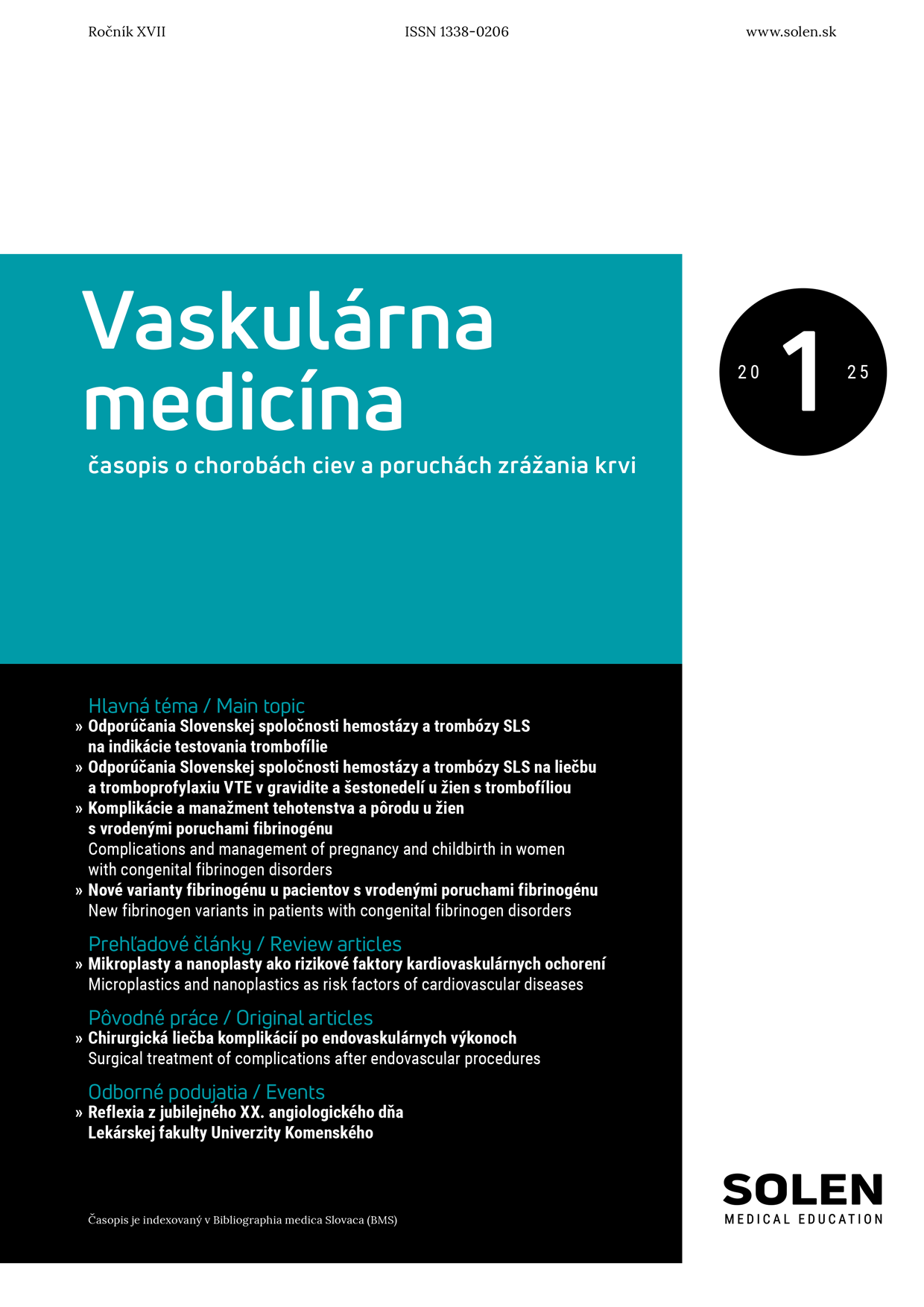Psychiatria pre prax 1/2014
Neurokognitívne poruchy v DSM-5
Zaradenie diagnózy – ľahkej neurokognitívnej poruchy – sa stalo kľúčovou zmenou v diagnostických kritériách v sedemnástej kapitole DSM-5, ktorá sa venuje neurokognitívnym poruchám (v minulosti, v DSM-IV, označované: „delírium, demencia a amnestické alebo iné kognitívne poruchy“). Čo bolo dôvodom pre zaradenie ľahkej neurokognitívnej poruchy do DSM-5? Máme jasné a logické opodstatnenie pre rozšírenie diagnostických kategórií na zaradenie ľahkej neurokognitívnej poruchy (v minulosti najčastejšie opisovanej v literatúre ako ľahká kognitívna porucha (mild cognitive impairment, MCI). Osoby vo vyššom veku vyhľadávajú lekárske a psychiatrické, ako aj psychologické vyhodnotenie neurokognitívnych ťažkostí, ktoré však nespĺňajú kritériá pre veľkú neurokognitívnu poruchu, ale spôsobujú im problémy. A tak sa tieto osoby dostávajú pod hranicu normálneho fungovania aj v neuropsychologických testoch, ale príznaky ich ochorenia nie sú dosť závažné na to, aby sme ich mohli klasifikovať ako veľkú neurokognitívnu poruchu, ktorá sa, podľa tradície, nazývala demencia.
Kľúčové slová: DSM-5, neurokognitívna porucha.
Neurocognitive disorders in DSM-5
The introduction of the diagnosis „mild neurocognitive disorder“ is the crucial change in the diagnostic criteria for the neurocognitive disorders Chapter seventeen of DSM-5 (previously entitled „Delirium, Dementia, and Amnestic and Other Cognitive Disorders“ in DSM-IV). What is the rationale for including mild neurocognitive disorder in DSM-5? There is a clear and logical clinical justification for expanding our diagnostic categories to include mild neurocognitive disorder, or what has been described most frequently as mild cognitive impairment. Individuals in later life often seek medical, psychiatric or psychological evaluation for neurocognitive problems that do not meet criteria for a major neurocognitive disorder but are clearly disturbing them. These individuals frequently fall below the normal range of function on neuropsychological testing, but their signs and symptoms are not severe enough to be classified as major neurocognitive disorder or what we have traditionally labelled dementia.
Keywords: DSM-5, neurocognitive disorder.





-1.png)











